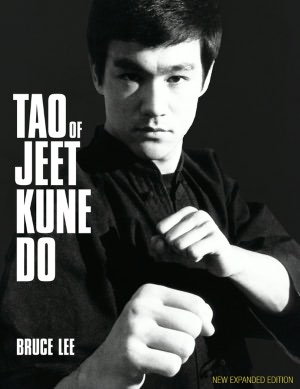
Just a few years before punk exploded onto the stage of popular culture everyone was talking about an eruption of energy of a quite different kind. The martial arts boom was something that had to be experienced to be believed. Largely on the back of the Bruce Lee film Enter The Dragon there was suddenly a huge interest in Chinese martial arts - Kung Fu. There had been surges of interest in oriental fighting arts dating back to the Edwardian passion for ju-jitsu, judo had matured to into an Olympic sport and the arts of karate and aikido had been practised in this country for years but there had never been anything quite like this. Literally thousands of young hopefuls queued up at the doors of the kung fu clubs that had mushroomed in a few short months. Karate and the other systems were able to piggy-back on the boom and there was a massive increase in participation. A lot of money was made during the boom. Apart from the cash from clubs and private lessons there was a deluge of books and magazines. Equipment was being sold as fast as it could be manufactured with everything from that most impractical form of combat footwear, the kung fu slipper, to reproduction samurai swords to (and I swear to God) a special dartboard for throwing shurikens at.
Of course there were positive aspects to all this activity. For a start it provided an impetus for young men, and this was almost exclusively a male obsession, to get off the sofa and go out and get fit and although most would last for only a few weeks of training for others it was the start of a rewarding hobby. On the down side there was an unfortunate orientalism in the air. Western boxing and wrestling were denigrated as being crude and lacking in technique. Many martial artists genuinely believed that no boxer would last more than a few seconds with a karate black-belt. There were to be a lot of sadly disenchanted martial artists around when full contact karate (kickboxing) arrived on the scene.
By the mid 1980's an increasing number of people were coming to the conclusion that recreating the hierarchy of feudal Japan in the local Scout Hut had little to do with real combat and that when it came to fighting, like much else in life, the proof of the pudding was in the eating. Many of the blind alleys of the martial arts boom could have been avoided by paying a little more attention to the one person who was largely responsible for the boom in the first place. When Bruce Lee's notes were posthumously published as the Tao Of Jeet Kune Do it became a best seller. I'm just not sure how many people actually bothered to read it. Personally I was amazed at how much politics I found in the book. Bruce Lee was more than just a young guy who wanted to make it in the movies. He was very much a product of the sixties. A pragmatist, a rationalist, who was happy to challenge the status quo. A wing chun practitioner he was also hugely influenced by western boxing and wrestling. Much of this has been supersede by Mixed Martial Arts but the core principle that runs through Bruce Lee's approach to the combat arts is as valid today as ever - absorb what is useful.
2 comments:
"Recreating the hierarchy of feudal Japan in the local Scout Hut" - love it !
I've been studying 'traditional' Easterm martial arts for about 25years - and much as I love them, I can confirm that are a magnet for loons and fantasists. Look online at the flame wars between different styles conducted by keyboard jockeys who are grandmasters only in their own minds. Bruce's message is truer today than ever - it's the martial artist not the martial that matters.
From a slightly different angle, an Indian mate of mine once told me that when Bruce Lee hit the screens him and his friends (mostly Villa hooligans) loved it because there was an Asian boy dishing it out. Not very pc I know but there you go.
Post a Comment